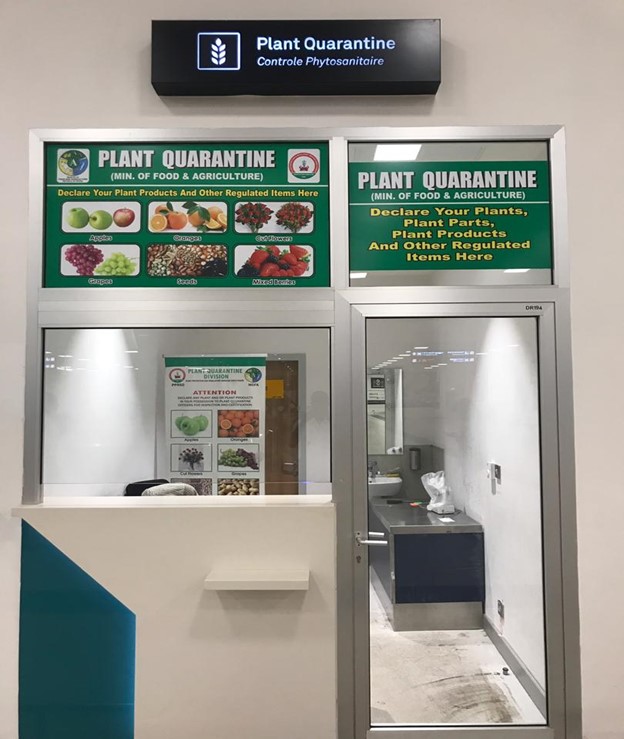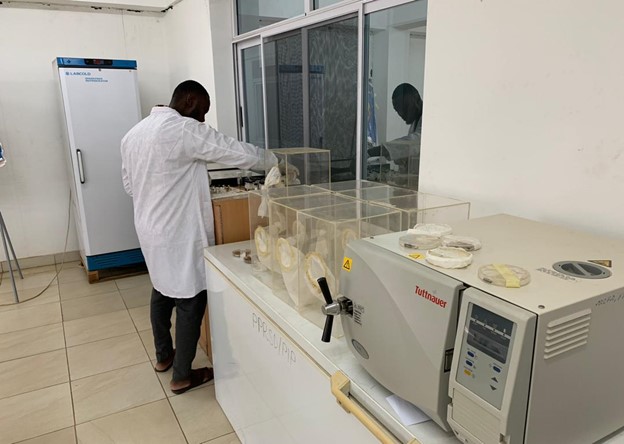Between 2015 and 2017, Ghana came under the radar of the EU for the wrong reasons, leading to severe restrictions on exports. Despite favourable concessions as a result of Ghana being a signatory to the Economic Partnership Agreement, the EU in September 2015 placed a ban on some vegetables originating from Ghana, citing the presence of toxins and “pest issues” which made the vegetables “unwholesome for consumption. These products include calabash, eggplant, chilli peppers and the cucumber-like luffa, also known as Chinese okra. As a result, Ghana’s economy reportedly lost about 36 million dollars in foreign exchange.
Although the ban was lifted on 1st January 2018, the situation is worrying because the EU is still Ghana’s biggest market hence any ban in the future may hamper the progress made in the Non- Traditional Exports (NTES) sector and Ghana’s target of raising $25.3 billion from NTES by 2029. The Plant Protection and Regulatory Services Directorate (PPRSD) is an agency under the Ministry of Food and Agriculture, the PPRSD was established in 1965 by an Act of Parliament: Prevention and Control of Pest and Diseases of Plants Act, 307 and replaced by the ‘Plants and Fertilizer Act, 2010 (Act 803).
The PPRSD is the Institution with the mandate to organize, regulate, implement, and coordinate the plant protection services needed for the country in support of sustainable growth and development of Agriculture. In short, the department is mandated to ensure that all plant products imported or exported are safe and meet all international requirements and standards.
 PPRSD’s Inspection point at the Kotoka International Airport (KIA)
PPRSD’s Inspection point at the Kotoka International Airport (KIA)
PPRSD goes Digital
In an attempt to prevent future bans on NTES to Europe, the PPRSD went digital with its tracing system dubbed ‘E-Traceability’. The move was to ensure that Ghanaian agricultural products earmarked for export are fully monitored from the production, handling, transport and export stage. The system ensures food safety because allows stakeholders in the supply value chain to confidently verify that plant product such as fruits and vegetables are safe and unrelated to any ongoing food safety incidents.
The system also helps in mitigating the incidence of fraud and counterfeiting of plant-based products as well as ensuring trust between exporters and their customers.
The E-Traceability system which became operational in September 2021 immediately resulted in positive feedback. Statistics from the PPRSD at the time of its operationalization indicated that the number of alerts from the EU dropped by 97.1%, from 345 alerts in 2015 to under 10 alerts in 2021. The PPRSD plans to phase out the manual traceability system completely in favour of the E-Traceability system by 2024.
Despite the evidence of positive results from the E- Traceability system since its rollout, patronage has been low due to a number of reasons. Speaking to the Shipping Review Magazine in Accra, the Director of the Plant Protection and Regulatory Services Directorate Mr. Eric Bentsil Quaye said: “The E-Traceability System as we all know is a good system that has come to stay to help the food chain, however, its patronage hasn’t reached our level of expectation primarily due to the fact that some exporters do not have IT inclined staff to handle their traceability system while others view the system as cumbersome to use.” As a result, Mr. Quaye has called for more stakeholder engagements to encourage exporters to patronize the system.
 Incubation of Fruits and Vegetables for pest presence before they are exported or when imported
Incubation of Fruits and Vegetables for pest presence before they are exported or when imported
ePhyto system
The National Plant Protection Organizations (NPPOs) are mandated to ensure the promotion of cross-border trade by adhering to and enforcing the regulations that check the import and export of plant products to prevent the transfer of pests and diseases. It is for this reason that Phytosanitary Certificates are issued to confirm that plants, plant products and other regulated articles earmarked for import/export meet the specified requirements.
Currently, the widely used model of phytosanitary transmission in International Trade is the paper Phytosanitary certificate that accompanies commodity shipments.
The system, when fully functional in Ghana will help reduce the possibilities of fraudulent documentation, data entry anomalies and validation functions by NPPO staff, improve security in the transmission of certificate documentation and Improve planning for the arrival and clearance of plants and plant products.
Over the past years, there have been attempts to put in place a fully functional ePhyto System in Ghana, with several stakeholders championing such calls. The Director of the Plant Protection and Regulatory Services Directorate, Mr Eric Bentsil Quaye is one of such persons.
According to him, the global market is gradually becoming electronic based, thus moving from manual documentation to electronic document transfer. He noted that most countries are now switching to the use of electronic phytosanitary certification transfer (ePhyto) for International Trade and Ghana has developed its system to a point that needs assistance to push it into full operation.








